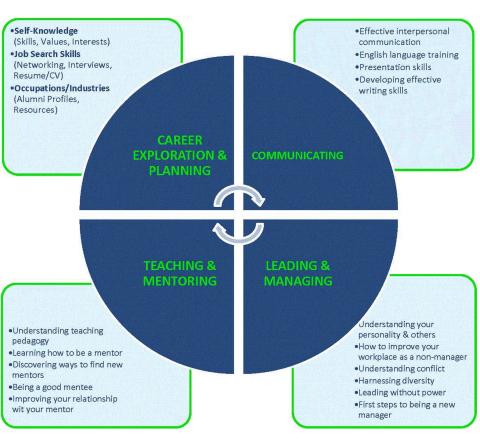Last week in Part I, we offered some ideas for mentees in order to maximize their mentoring relationships. This week, we are going to focus on mentors.
Perhaps you are a summer intern or you are managing a summer intern?
Regardless of your role, managing the mentor-mentee relationship can be a difficult task. Attempting to creating a good personality fit and work style with your mentor, and effectively offering and using feedback, all while managing ever-present demands in the workplace can prove to be a tough and confusing experience for both mentors and mentees.
Wondering how you can better choose and create a positive working relationship with your mentor or mentee?


In the first part of this series, we talked about how to identify a good mentor. Now that you have done so, how do you cultivate and maintain that relationship? Identifying a mentor is not an easy task; making it work can be even more challenging. In this blog, we will give you some tips to help foster and maintain your mentoring relationships. Take ownership of your career Take charge; remember you are the one in control! Think about your career goals in the short-term and long-term.

You have probably heard the word “mentor” many times and how important a mentor can be for your career, but how can you identify suitable mentors for you? This is a question that many trainees ask themselves. Identifying a good mentor is not an easy task and it takes time and dedication.
Name: Benjamin Porter, PhD
Job Title & Company: Communications Manager, Office of Communications; The University of Texas at Dallas
Location: Dallas, Texas
How long you’ve been in your current job: 3 months
Postdoc Advisor, IC and subject: Alan Koretsky, NINDS, Behavioral fMRI
As you get ready to end your summer internship or your summer rotations as a grad student, don’t forget to keep in touch.
Post written by Lori M. Conlan, Director of the Postdoc Office and the Career Services Center at the OITE This week I had lunch with the first mentor I had outside of the lab environment. In 2006, I had just left my postdoc to join a non-profit in Manhattan—the New York Academy of Sciences. I knew I could do the job running a career development program for graduate students and postdocs, but I was clueless about how life worked in an office. I started on a Tuesday, and by Friday I was sent off on my first business trip to Miami.
There are many important aspects to having a successful career. One aspect often overlooked is making sure you have a community of peers. Communities provide more than just support for everyday life and challenges. They are great for building networks, developing co-mentoring relationships and gaining leadership experience. Coming to a large campus, like the NIH or a college campus, can feel like you have landed on a different planet. Everything is so different.
Are you starting to think about finding the perfect postdoc position? First, you need to decide whether you need to do a postdoc at all. Depending on your career aspirations, a postdoc may only serve to delay your entry into your desired career or even hinder your ability to get started doing what you really want to do. However, that is another post for another time.
You have decided that a postdoc is the next step, so here are some key elements to consider:

